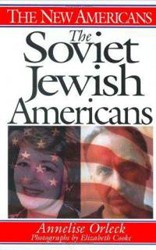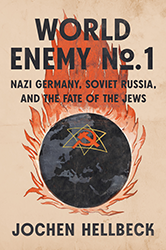The author, a San Francisco activist, was passionately involved in the movements for Russian Jewish emigration and Russian human rights. He provides an account of Jewish life under the Bolsheviks and indicates that Jewish dissent is as old as the Soviet regime. Catalysts for the dramatic Jewish awakening were the reestablishment of a Jewish state, the Six Day War, an abortive plot by Russian Jews to highjack a plane to escape, the refusenik issue, and a number of show trials. Spiegel emphasizes that among the Russian Jews and those in the West who sought to help them, the campaigns were mainly grassroots efforts. Soviet Jews whose stories he tells include Alexander Lerner, Vladimir Slepak, Yosef Mendelevich, Sylva Zalmanson, and Ida Nudel. Individual chapters are devoted to Natan Sharansky and the great non-Jewish figure Andrei Sahkarov. The author believes that the American Jewish establishment was too cautious. However, he praises Rabbi Abraham Heschel and Elie Wiesel for their leadership. New organizations, notably the Student Struggle for Soviet Jewry, and local and state councils, took up the challenge with demonstrations, letters, personal contacts, boycotts, and approaches to the influential.
The plight of Soviet Jews, who were forbidden to know and to practice their traditions and to emigrate, caught the imagination of clergy such as Father Robert Drinan and congressional leaders Representative Charles Vanik and Senator Henry Jackson, who co-authored legislation linking trade privileges to Jewish emigration. American presidents and their secretaries of state interceded. The authors’ comments on the Reagan, Ford, and Carter adminisrations will be of interest. He also quotes from memoirs of Soviet leaders in power during the struggle. Mobilization of professional groups, especially medical and scientific, contributed to the campaign’s success. A sympathetic press, which kept the world informed, was an indispensable element.
Spiegel discusses conflicts within the Soviet Jewry movements. Israeli-sponsored efforts on occasion were at odds with those originating in the Diaspora. Some activists wished to assist only refuseniks yearning for Israel; others insisted that emigrees be given freedom of choice in destination. A split developed between those who wished to concentrate on emigration and those who endorsed a human rights campaign for all Soviet citizens.
With the breakup of the Soviet Union, the activists’ mission changed. Support for resettlement and absorption continued. The movements and Western groups became advocates for Jews who remained in a Russia shadowed by “nationalistic and chauvinistic forces.”
This title is a veritable who’s who of the Russian Jewry movements. Sadly, many of the earnest and heroic individuals listed are almost forgotten. Unfortunately, the narrative is often repetitive and eventually drags. The chronology lacks a high degree of clarity. Senator Tom Harkin of Iowa is identified in the text and index as Senator Tim Harkin. Despite those flaws, interested readers should find Triumph over Tyranny absorbing. This is a popular work in the best sense of the term. Black and white photos, glossary, index, notes.





